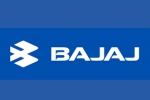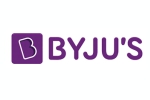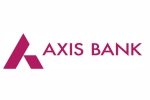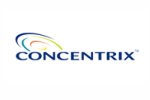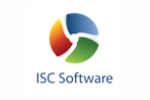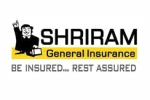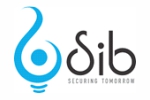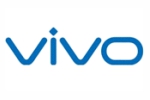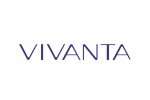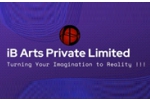



Lateral entry B.Tech programs in Electrical Engineering provide a pathway for diploma holders to upgrade their qualifications and acquire a full-fledged B.Tech degree in the field. Lateral entry B.Tech program is a seven semester degree program .The curriculum for lateral entry B.Tech in Electrical Engineering covers a wide range of subjects related to electrical systems, electronics, power generation, transmission, distribution, and more. It also provided career advancement in fields related to electrical power, electronics, telecommunications, automation, and more.
1. B.Tech-Electrical Engineering for Working Professional is a degree course, recognized by UGC.
2. The program has seven semesters adequately designed to nurture the professional with thorough knowledge of engineering subjects where classes are conducted online and with flexibility that is on weekends or after the business hours to suit the requirement of professionals.
3. Online exams are held with exam safety and appropriate assessments are done to evaluate the knowledge level of the candidate.
4. Experienced industry professionals, guest lecturers and renowned faculties take up classes and deliver lectures to make professional understand each and every concept of engineering.
5. The Dissertation enables students to comprehend the course and topics taught and apply in their current professional work.
6. An appropriate Evaluation system is used for assessment of the professionals at regular intervals and propel them to stay connected with the course programs and its application.
7. The students on successfully completion of the Degree Program are awarded with Bachelor’s Degree in Electrical Engineering.
| WILP B-TECH ELECTRICAL & ELECTRONICS ENGINEERING | |||||||||||||||||
| II -Year-III-Semester | II -Year-IV-Semester | III YEAR-V SEMESTER | III YEAR-VI SEMESTER | IV YEAR-VII SEMESTER | IV YEAR-VIII SEMESTER | ||||||||||||
| S.No | Course Title | Credits | S.No | Course Title | Credits | S.No | Course Title | Credits | S.No | Course Title | Credits | S.No | Course Title | Credits | S.No | Course Title | Credits |
| 1 | Mathematics | 3 | 1 | Electrical Machine II | 3 | 1 | Control Engineering I | 3 | 1 | Control Engineering II | 3 | 1 | Power System II | 3 | 1 | Power Transmission and Distribution | 3 |
| 2 | Network theory | 3 | 2 | Electromagnetic field theory | 3 | 2 | Power System Protection | 3 | 2 | Utilization of Electrical Power | 3 | 2 | Electric Drives | 3 | 2 | Embedded Systems and Applications | 3 |
| 3 | Electrical Machine I | 3 | 3 | Signal and systems | 3 | 3 | Smart Electric Grid | 3 | 3 | Electrical Engineering Material | 3 | 3 | Power Electronics | 3 | 3 | Departmental Elective-VI | 3 |
| 4 | Analog electronics | 3 | 4 | Digital Electronics | 3 | 4 | Sensor & Instrumentation | 3 | 4 | Departmental Elective-II | 3 | 4 | DepartmentalElective-IV | 3 | 4 | Departmental Elective-VII | 3 |
| 5 | Electrical Measurement & instrumentation | 3 | 5 | Power System-I | 3 | 5 | DepartmentalElective-I | 3 | 5 | Departmental Elective-III | 3 | 5 | Departmental Elective-V | 3 | 5 | Project Work (Phase-II) | 8 |
| 6 | Network theory Lab | 1 | 6 | Electrical Machine II Lab | 1 | 6 | Control Engineering I Lab | 1 | 6 | Control Engineering IILab | 1 | 6 | Power System II lab | 1 | |||
| 7 | Electrical Machine I Lab | 1 | 7 | Digital Electronics Lab | 1 | 7 | Departmental Elective-I Lab | 1 | 7 | Utilization of Electric power Lab | 1 | 7 | Project Work (Phase-I) | 4 | |||

Live & Recorded Lectures with cutting-edge tutorials.

Interact and Collaborate with Peers and Faculty

Online Mentoring

Use of Multimedia and Open Educational Resources

'Flipped' Classrooms

E-portfolio & Peer Assessment

Work Integrated Advantage

Experiential Learning

Academic & Industry Mentorship

Continuous Assessment

Dissertation/Project Work
The curriculum is designed to build upon the foundational knowledge gained during the diploma program and provide advanced theoretical and practical insights into electrical engineering concepts. After completion of the course the working professionals will have ample of opportunities in various sectors of the economy. If you're interested in pursuing a lateral entry B.Tech program in Electrical Engineering, I recommend us for pursuing the course program.

I always wanted to grow in my career without taking a break, and my search for the right program led me to WILP’s Diploma course in Mechanical Engineering at Usha Martin University. The flexibility to pursue this course along with my job made it the perfect choice. The curriculum is very well designed, meeting all the latest industry requirements, and the faculty members are extremely knowledgeable and supportive.
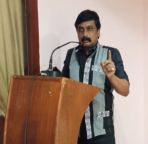
I wanted to excel in my career without a break and my search led to Usha Martin University WILP's M.Tech in Transportation Engineering course (can be pursued online) meeting all industry needs. Also ,it has the best faculty! Highly Recommend.
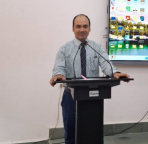
Pursuing B.Tech (Civil Engineering) from Usha Martin University and seamlessly advancing my education while maintaining professional career. The progress is exclusively tailored for ambitious working professionals. Here, the course curriculum and expert faculty members are committed to meeting and exceeding all industry standards.
